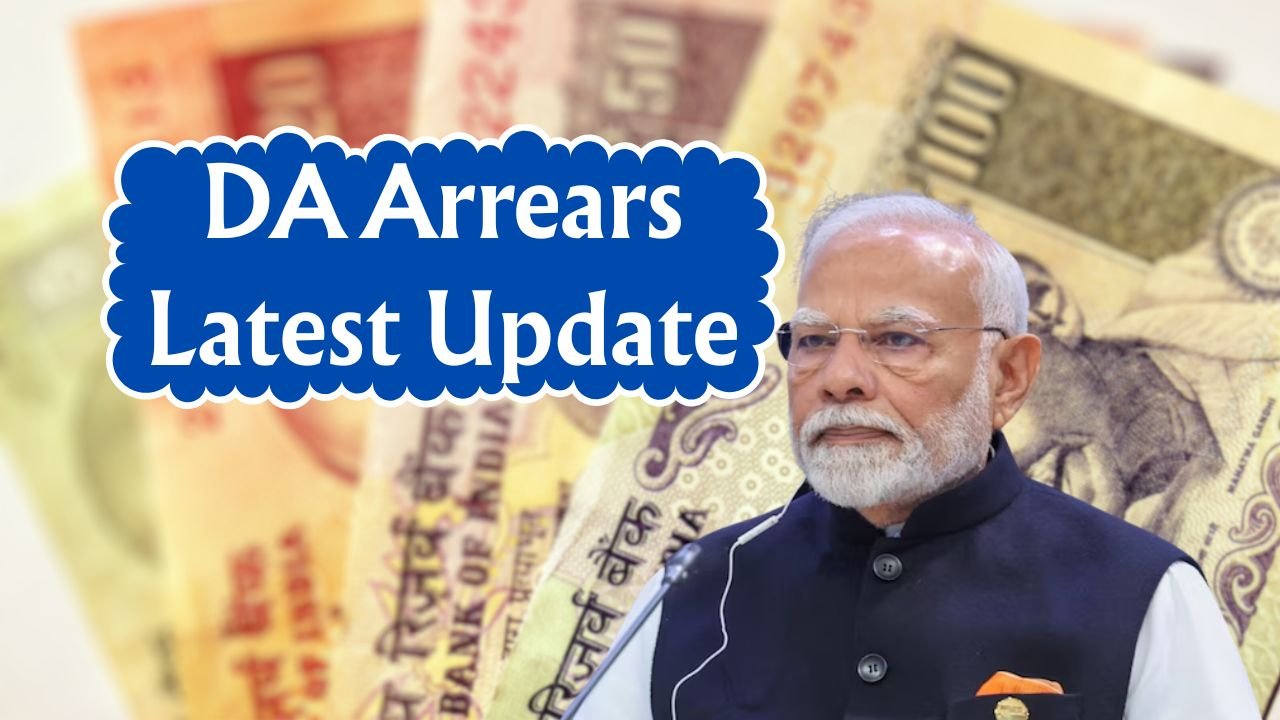DA Arrears June 2025, Back Pay from January Coming in June — Major Boost for Govt Employees!
The Indian government has officially greenlit the latest enhancement in the Dearness Allowance (DA) for central government employees and pensioners — and it’s a move that has brought significant financial relief. With the DA now standing at a revised 55% of basic pay following a 2% jump effective from March 2025, lakhs of employees and retirees will see meaningful increments in their income. Even better, the overdue payments for January to March 2025 will be cleared in June, bringing in much-needed lump-sum arrears.
When Will the Revised Amount Be Credited?
Due to the delay in the formal announcement, the DA arrears for the first three months of 2025 — January, February, and March — will be processed as a one-time payment along with the June 2025 salary or pension credit. This means over one crore government employees and pensioners will receive an additional boost beyond their standard monthly income.
The lump-sum payout is expected to ease the burden of increased living costs and provide timely support, especially for families facing budgetary constraints. The June payout will reflect both the DA revision and the accrued arrears — offering a two-fold financial advantage.
How Much Will Incomes Rise?
The impact of this 2% increase in Dearness Allowance might look small on paper, but in absolute terms, it means a noticeable gain:
- An employee drawing a basic salary of ₹50,000 will receive ₹1,000 more each month due to the DA hike.
- A pensioner receiving ₹30,000 monthly will now get an additional ₹600.
These increments are designed to help neutralize the effect of inflation, which continues to exert pressure on household finances. The increased DA also contributes toward enhanced House Rent Allowance (HRA) and other allowances pegged to basic pay.
DA Evolution Over the Years and What Lies Ahead
In recent years, DA revisions have ranged between 3% and 4%, depending on inflation trends and Consumer Price Index (CPI) calculations. The current 2% hike is comparatively modest, but it aligns with recent inflation data and budgetary conditions.
That said, all eyes are now on the next scheduled DA revision in July 2025 — which may be particularly significant as it coincides with recommendations from the much-anticipated 8th Pay Commission. If the trends of previous commissions hold true, employees and pensioners could see substantial changes not just in allowances, but in base pay structures and retirement benefits as well.
Why This DA Update Matters
This revised DA and the accompanying arrears are more than just numbers on a payslip. For millions of families, this means:
- Improved monthly cash flow.
- Extra funds for school admissions, medical bills, or loan EMIs.
- A sense of economic security amid rising inflation and cost-of-living challenges.
For pensioners, the timely payment of DA arrears is particularly crucial, as they rely heavily on fixed monthly incomes. The June 2025 adjustment acts as a buffer to help cover seasonal expenses and maintain financial stability.
Looking Ahead — Employee Expectations Growing
Although the June payout brings welcome news, many government workers are cautiously optimistic. They are hopeful for a more generous adjustment in July 2025, especially if the Pay Commission proposes long-awaited structural reforms.
Talks are already swirling about the potential reshaping of pay matrices, streamlined benefit structures, and improved post-retirement support systems. Whether or not these materialize in the next round remains to be seen — but the expectation is loud and clear: more impactful changes are needed.
Final Word
With the 55% DA now officially implemented and arrears from January through March 2025 set to be disbursed in June, central government employees and pensioners can breathe a sigh of relief. While the 2% hike may seem modest, the timely clearance of arrears and the boost in monthly take-home pay signal the government’s commitment to mitigating inflation-related stress.
As anticipation builds toward the next revision cycle and the 8th Pay Commission’s proposals, employees across departments remain hopeful for deeper reforms and stronger financial recognition of their service.
Also Read
- Government Confirms 8th Pay Commission Date – Full Salary Hike Matrix for Level 1 to 18 Out
- WB E Ration Card Update 2025 – Apply Online, Track Status & Download Instantly
- NPS or OPS: Which Retirement Plan Wins? Latest Updates & Must-Know Facts!
- EPFO 3.0 Update 2025 – Latest Withdrawal Policies and Credit Card Modifications

Shrishti is an experienced writer and editor with a strong focus on Government Schemes, News, Technology, and Automobiles. She brings clarity and depth to complex topics, making them accessible and engaging for a wide range of readers. With a keen editorial eye and a passion for accuracy, Shrishti ensures every piece she works on is well-researched and impactful. Her ability to adapt her writing style to suit different audiences makes her a valuable voice in digital and print media, keeping readers informed and up to date with the latest developments.





